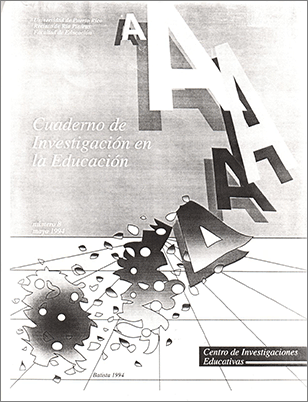Abstract
This study explores the possible relationship between story-reading and the emerging knowledge of printed Spanish in a group of low-class Puerto Rican preschoolers. The purpose of the study was to determine if there was a significant difference between the knowledge of printed Spanish of preschool children who were exposed to story-reading within the context of the traditional reading readiness program, and that of preschoolers who received the reading readiness training but were not systematically exposed to story-reading. One hundred and twenty four-year-olds constituted the sample. They were pre-tested for knowledge of printed Spanish with a Spanish version of Concepts About Print Test, Sand (Clay, 1972). Control and experimental subjects were matched according to their scores in the pre-test. Experimental children were exposed to story-reading at least three times per week, during four months. At the end of the treatment, children were post-tested with a Spanish version of Concepts About Print Test, Stones (1979). Results indicated that there was a significant difference in favor of the children in the experimental group.
How to cite:
Molina-Iturrondo, Ángeles. (1994). Story-reading and the knowledge of printed Spanish: Exploring their relationship in the preschool classroom. Cuaderno de Investigación en la Educación, 8, 4-23. Retrieved from https://revistas.upr.edu/index.php/educacion/article/view/16404
The contents published in the Puerto Rico Journal of Education is freely distributed under open access practices, in accordance with the Creative Commons license, Attribution-NonCommercial 4.0 International (CC BY-NC 4.0). Through these principles, the journal and its authors allow readers to access, reproduce and share articles in full text. Users should give credit to authors in a reasonable way without suggesting they have their support. Under no circumstances, readers may make use of the contents for commercial purposes. The authors retain copyright on their works.

